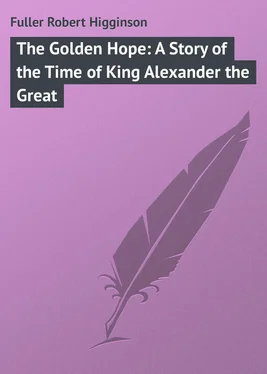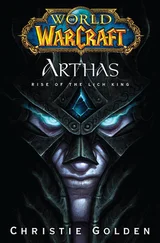Robert Fuller - The Golden Hope - A Story of the Time of King Alexander the Great
Здесь есть возможность читать онлайн «Robert Fuller - The Golden Hope - A Story of the Time of King Alexander the Great» — ознакомительный отрывок электронной книги совершенно бесплатно, а после прочтения отрывка купить полную версию. В некоторых случаях можно слушать аудио, скачать через торрент в формате fb2 и присутствует краткое содержание. Жанр: Прочие приключения, foreign_prose, на английском языке. Описание произведения, (предисловие) а так же отзывы посетителей доступны на портале библиотеки ЛибКат.
- Название:The Golden Hope: A Story of the Time of King Alexander the Great
- Автор:
- Жанр:
- Год:неизвестен
- ISBN:нет данных
- Рейтинг книги:4 / 5. Голосов: 1
-
Избранное:Добавить в избранное
- Отзывы:
-
Ваша оценка:
- 80
- 1
- 2
- 3
- 4
- 5
The Golden Hope: A Story of the Time of King Alexander the Great: краткое содержание, описание и аннотация
Предлагаем к чтению аннотацию, описание, краткое содержание или предисловие (зависит от того, что написал сам автор книги «The Golden Hope: A Story of the Time of King Alexander the Great»). Если вы не нашли необходимую информацию о книге — напишите в комментариях, мы постараемся отыскать её.
The Golden Hope: A Story of the Time of King Alexander the Great — читать онлайн ознакомительный отрывок
Ниже представлен текст книги, разбитый по страницам. Система сохранения места последней прочитанной страницы, позволяет с удобством читать онлайн бесплатно книгу «The Golden Hope: A Story of the Time of King Alexander the Great», без необходимости каждый раз заново искать на чём Вы остановились. Поставьте закладку, и сможете в любой момент перейти на страницу, на которой закончили чтение.
Интервал:
Закладка:
"Then we must remind him," Leonidas said, "and that is another reason why we must go to Thebes."
Eresthenes gave the young men a cordial good-speed when they left him in the morning to set out for the beleaguered city. They descended from the mountains and entered the fertile plains of Bœotia, through which they rode all day without finding a sign of war. The farmers went about their work and the shepherds were pasturing their flocks as peacefully as though there were no such things as armies and slaughter. More than once they stopped to ask news of the siege, but the people of the plain could tell them nothing. Many of them had not heard that Alexander was before the city; others had indeed heard the rumor, but convinced that they themselves were safe, they took no interest in it.
Evening was drawing on and they had approached to within a few miles of the city when they met a rider whose horse was dripping with sweat.
"Ho, there; what news of Thebes?" Leonidas shouted as he passed.
The man looked at them, but made no answer. He bent low on the neck of his horse and his cloak flew out behind him like the wings of a huge bird.
"There has been a battle," Leonidas said. "Was he Theban or Macedonian?"
Burning with impatience, they urged their horses to the crest of a low hill, where they came suddenly upon half a dozen cavalrymen, who had halted in a small grove to bind up a wound which one of their number had received in the shoulder.
"What has happened?" Leonidas asked, drawing rein beside them.
"Know you not that the city has fallen?" one of the soldiers replied. "The accursed Macedonians forced us in through the gates and came in with us. Not a soul is left alive in Thebes, and my wife and children were there!"
"And that is where you should be," the Spartan replied contemptuously.
The poor fellow burst into tears at this reproach as he thought of the fate of his little family. Clearchus, touched by his grief, drew out his purse and gave it to him.
"If they are still living, this may aid you to ransom them," he said.
As the two friends proceeded they now began to meet other bands of fugitives straggling along the road. Most of them fled silently, often looking back over their shoulders as if in dread of pursuit.
"Cowards!" said Leonidas, scornfully.
"Life is sweet to all of us," Clearchus remonstrated, thinking of Artemisia.
"To such as these it should be bitter!" the Spartan replied.
They were rounding a turn in the road as he spoke, and before the words were well out of his mouth they found themselves entangled in a rabble of horsemen, who were retreating before a fierce attack.
"In here, quickly!" Leonidas cried, urging his horse back among the trees beside the road.
They had barely time to gain this shelter before the rush of plunging horses and shouting men went past them. The Thebans were evidently making a desperate attempt to rally, and just beyond the spot where the two were concealed they halted, wheeled, and stood at bay.
But before they had accomplished this manœuvre the foremost of the pursuers, headed by a young man riding a powerful chestnut horse, swept into sight. The leader, in his excitement, had distanced his troop. Clearchus and Leonidas, who, from their position in the elbow of the road, were able to see in both directions, realized that he was galloping straight into an ambush. Leonidas started forward to warn him, but it was too late. The Thebans had regained their order, and with a wild shout they charged back around the curve.
Either the unexpectedness of the onset caused the chestnut to swerve, or his rider tried to pull him up too suddenly, for he stumbled and went to his knees. The young man was pitched headforemost into the underbrush and fell almost at the feet of Leonidas.
Some of the Theban troopers saw the accident and rushed upon him with cries of triumph. They were confronted by Leonidas and Clearchus, who stood over the prostrate figure with drawn swords. Surprise caused the Thebans to hesitate, and this saved the lives of all three; for the Macedonian riders, thundering down upon the Thebans at full speed, struck them and tore them to pieces. Horse and man went down before that fierce charge, which left nothing behind excepting the dead and a handful of wounded, whose cries for mercy were cut short by a sword-thrust. The survivors fled without looking behind them.
"Where is Ptolemy?" shouted one of the Macedonians, a bearded man who seemed to be second in command. "Who has seen the captain?"
"He rode in advance," one of the troopers replied.
"If we do not bring him back, we shall have to answer for it to the king, and you know what that means," the first man said.
"He is here!" Clearchus called from the thicket.
The bearded lieutenant and several others hastily dismounted and carried their captain out into the road. He was still unconscious.
"Who are you?" the lieutenant demanded gruffly, looking at the two young men with suspicion.
"I am Clearchus of Athens, and this is Leonidas of Sparta," Clearchus replied.
"Of Athens!" the man said sneeringly. "Go back to your city and tell the cowards who live there that we are coming!"
"As you came once before – with Xerxes!" the young Athenian answered quickly.
The lieutenant's face grew livid and he whipped out his sword.
"Cut their throats! Kill them!" the troopers cried angrily, pressing closer.
Like a flash, Leonidas bestrode the form of the captain, sword in hand.
"I am of Sparta!" he cried boastfully. "My country never saw the face of Philip, nor shall it look upon that of his son, who calls himself the Hegemon of all Hellas. Put away your swords, or here is one whose funeral you will celebrate to-morrow!"
He placed the point of his blade at the captain's throat as he spoke. The men of Macedon dared not move.
"Listen to reason!" Clearchus said hastily. "We are without armor, as you see. We saved the life of your captain, and we are on our way to Thebes to see Alexander on matters of importance. Take us with you and let your king deal with us. This is no time nor place for brawling."
"You are right," the lieutenant said sullenly. "Let it be as you say."
He sheathed his sword, and the others followed his example, though with an ill grace. The captain had begun to recover his senses. His skull must have been tough to have resisted the shock of his fall without cracking.
"Why are you letting me lie here?" he demanded. "Where is the enemy?"
"Scattered and gone, excepting these that you see," the lieutenant replied, pointing to the bodies.
"Then get me on a horse and back to camp," the captain ordered.
As they rode the lieutenant explained the presence of Clearchus and Leonidas. The captain frankly gave them thanks when he learned that they had protected him while he lay helpless.
"I am Ptolemy," he said, "and since you desire to see Alexander, I will take you to him. I owe you much and the day may come when I shall be able to repay you."
CHAPTER IX
THE DOOM OF THEBES
The plain where once the sons of Niobe lay weltering had borne its last harvest of slaughter. On every side Leonidas and Clearchus noted the ghastly evidences of battle. Darkness fell before Ptolemy's troop reached the shattered gates of Thebes. Men with torches in their hands wandered through the streets strewn with corpses, seeking plunder among the dead or searching for the bodies of friends. Neither sex nor age had been spared when Perdiccas hewed his way into the city. The very altars of the Gods were crimsoned with the vengeance taken by the Phocians, the Platæans, and the Bœotians for the centuries of cruel oppression that they had suffered from the rapacious brood of the Dragon.
Mothers lay dabbled in blood, with their infants beside them, struck down in flight. The market-place was heaped with bodies, showing how desperate had been the final stand of the Theban soldiers. The streets were littered with household gear that had been dragged in wantonness from despoiled homes.
Читать дальшеИнтервал:
Закладка:
Похожие книги на «The Golden Hope: A Story of the Time of King Alexander the Great»
Представляем Вашему вниманию похожие книги на «The Golden Hope: A Story of the Time of King Alexander the Great» списком для выбора. Мы отобрали схожую по названию и смыслу литературу в надежде предоставить читателям больше вариантов отыскать новые, интересные, ещё непрочитанные произведения.
Обсуждение, отзывы о книге «The Golden Hope: A Story of the Time of King Alexander the Great» и просто собственные мнения читателей. Оставьте ваши комментарии, напишите, что Вы думаете о произведении, его смысле или главных героях. Укажите что конкретно понравилось, а что нет, и почему Вы так считаете.












